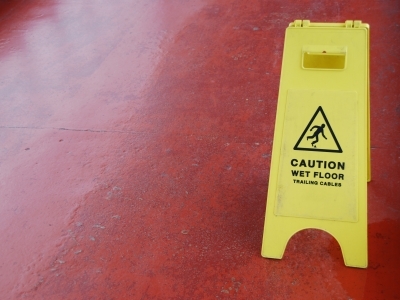
Slip and fall accidents occur every day. Often, these mishaps result in serious back, neck or knee injuries that severely impact the daily lives of people who experience them.
Florida is an extremely tough state when it comes to proving fault in slip and fall cases. In order to do so, there must be proof that a shopkeeper was aware of the dangerous conditions that caused the accident. First stated in Owens v. Publix Supermarkets, Inc., and later codified in Florida Statute ? 768.0755, Florida requires the injured plaintiff to prove that a foreign transitory substance (i.e., a liquid, banana peel, etc.) was on the floor for a length of time sufficient enough for the shopkeeper to become aware of the condition.
What does this mean in terms of a real slip and fall case? What this statute does is effectively shift the burden to the plaintiff to somehow prove how long the substance was on the floor. But, how does one prove this?
One way is for the injured party to be able to testify that the substance looked dirty, had shopping cart tracks through it, or that the banana peel was brown. There is actually a case where the court went into great detail using the fact that the banana peel that caused the accident was brown as evidence for their case. The banana peel, they alleged, had to have been on the floor for a sufficient amount of time because it was brown. Had it been a fresh banana peel that had only been on the floor for a short period of time, it would have been yellow.
Another way to prove the amount of time a substance has been on the floor is by video surveillance evidence. This method is usually difficult to use because many stores have video surveillance that is either grainy or out of focus. Often, the video simply doesn?t cover the area where the slip and fall occurred.
If you are seeking legal action against an entity who you feel was responsible for a slip or fall, it is important to hire an attorney who is well versed in these types of cases. They will need to know the intricacies of proving the shop owner was at fault and know the best methods to do so.
Peter Hunt, Esq., is a maritime and personal injury attorney at LaBovick Law Group. His main practice area of focus is transactional maritime law.[…]
Source: labovick.com
